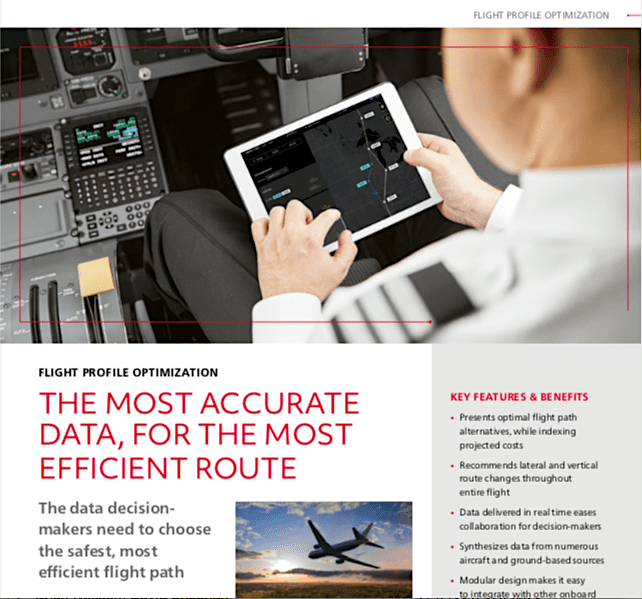
#CAIPODCAST Ep. 81: NSR’s Brad Grady Talks Market Outlook for In-flight Satellite Connectivity Services

On this episode of the Connected Aviation Intelligence Podcast, we provide a replay of the live presentation given by Brad Grady, Research Director for Northern Sky Research, during the 2022 Connected Aviation Intelligence Summit.
Grady covers a range of different topics from the potential of Low Earth Orbit (LEO) satellite networks to disrupt the IFC market to airline business models, the impact of the increase in business jet operations and more.
Have suggestions or topics we should focus on in the next episode? Email the host, Woodrow Bellamy, at [email protected], or drop him a line on Twitter @WbellamyIIIAC.
Listen to this episode below, or check it out on iTunes or Google Play. If you like the show, subscribe on your favorite podcast app to get new episodes as soon as they’re released.

#CAIPODCAST Ep. 80: What’s Next for EFBs in Airline Operations with Collins Aerospace
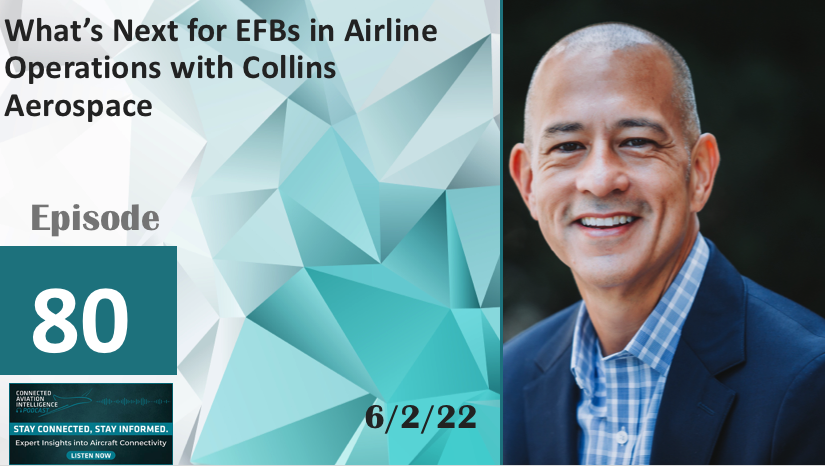
On this episode of the Connected Aviation Intelligence Podcast, Jon Merritt, VSL Flight Deck and Electronic Flight Bag (EFB) Applications, Collins Aerospace, joins to explain how the use of EFBs are evolving for airline pilots.
On June 1, Collins launched its new FlightHub Electronic Flight Folder with access to new fuel savings application. Merritt, who is the former director of flight operations technology for United Airlines, discusses the importance of establishing a strategy when it comes to the adoption and operation of new EFB apps.
Have suggestions or topics we should focus on in the next episode? Email the host, Woodrow Bellamy, at [email protected], or drop him a line on Twitter @WbellamyIIIAC. Also, check out the agenda for the 2022 Connected Aviation Intelligence Summit just posted to our event website!
Listen to this episode below, or check it out on iTunes or Google Play. If you like the show, subscribe on your favorite podcast app to get new episodes as soon as they’re released.
This episode is sponsored by Collins Aerospace.
Learn more about how Collins Aerospace can enable Flight Profile Optimization by clicking here.
Download the Collins Aerospace FlightHub Data Sheet by clicking here.

#CAIPODCAST Ep. 79: How Cirrus Aircraft Operators are Flying with a New IQ

On this episode of the Connected Aviation Intelligence Podcast, we’re joined by two guests, including Ivy McIver, a pilot and director of the SR Product Line at Cirrus Aircraft and the company’s director of business development, Seneca Giese.
Two years ago, Cirrus Aircraft released its new Cirrus IQ app, giving SR20, SR22, and SR22T pilots and maintainers the ability to remotely check the status and performance of systems and components on their aircraft. McIver and Giese explain how Cirrus IQ works and what new features they’re developing and adding to it.
LListen to this episode below, or check it out on iTunes or Google Play. If you like the show, subscribe on your favorite podcast app to get new episodes as soon as they’re released.

#CAIPODCAST Ep. 78: Connect Airlines Chief Operating Officer Talks Digital-First Operational Strategy

When Waltzing Matilda Aviation (WMA)—the Boston-based FAA Part 135 charter operator—first launched its new Toronto-based Connect Airlines last year, the company’s CEO described his observation of the pandemic as driving airlines to become “lean, agile and digital-first.”
On this episode, Connect Airlines Chief Operating Officer Dave Marcontell provides a status update on how the Q400 operator is preparing to launch passenger-carrying operations.
The COO also discusses how they’re continuing that commitment to becoming digital-first by investing in a new QR code-based asset records management system, his vision for becoming a paperless operation and whether they will feature in-flight Wi-Fi on their fleet of Q400s.
Listen to this episode below, or check it out on iTunes or Google Play. If you like the show, subscribe on your favorite podcast app to get new episodes as soon as they’re released.

SAS Becomes Launch Airline for Digital Alliance Predictive Maintenance Tech
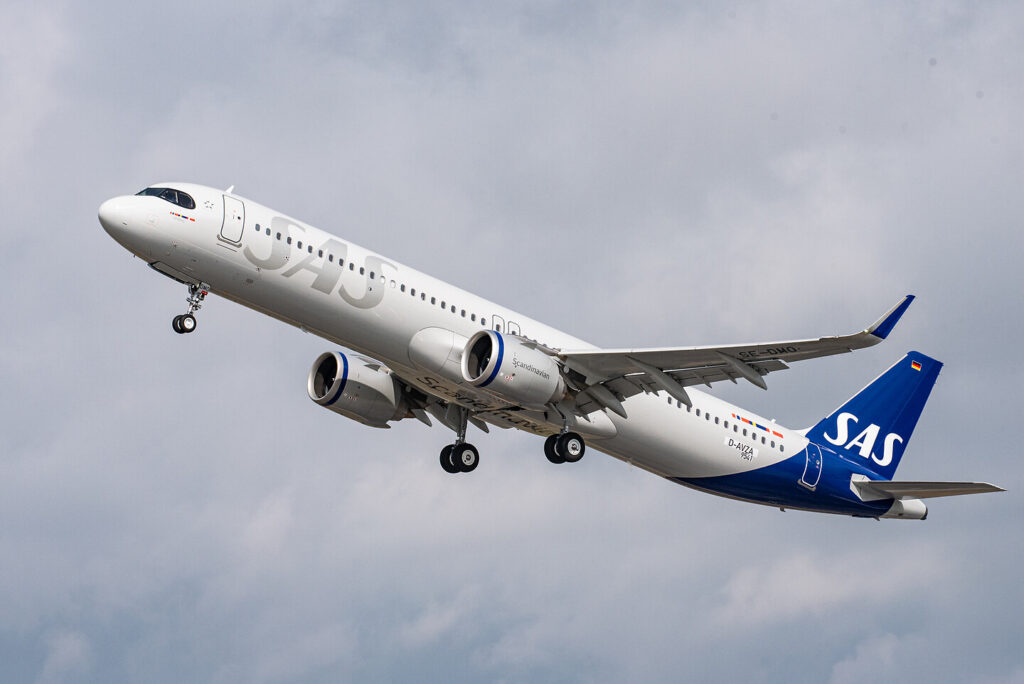
SAS Scandinavian Airlines has become the launch customer of the Skywise Predictive Maintenance (SPM) technology, “SPM Alliance,” provided by the Aviation Digital Alliance.
The Aviation Digital Alliance is a partnership first established in 2019 to combine the aircraft systems expertise of the maintenance division of Delta Air Lines with the flight data collection and cloud computing services of the Airbus Skywise platform. Last year, the partnership doubled the number of analytics algorithms as well as the number of aircraft parts that can be monitored by Skywise with the addition of GE Digital.
Now, SAS has signed an agreement that will integrate the SPM Alliance technology into its A320 family fleet, around 70 aircraft total.
Marko Rudic, Head of Technical Operations at SAS, said the Scandinavian carrier is ready to start using SPM’s “powerful analytics.”
“Thanks to SPM Alliance, we will be able to pre-empt operational disruptions and accelerate maintenance decisions by predicting potential in-service issues across our large A320 Family fleet,” he said in an April 26 press release. “This is the proactive approach to fleet technical management that SAS wants to take.”
Skywise, the aviation data platform launched by Airbus in 2017, provides the key digital infrastructure to the Alliance, as it provides a singular access point to data analytics that combine multiple sources into one secure cloud-based platform, including work orders, spares consumption, components data, aircraft/fleet configuration, onboard sensor data, and flight schedules. Airbus estimates that the cloud computing infrastructure—servers, based in Ireland—that hosts Skywise contains about 15 petabytes, or 15 million total gigabytes, of flight operational data points about individual in-service Airbus aircraft parts, systems, and engines.
While Skywise and the broader Digital Alliance platform with Delta TechOps and GE Digital collects data about other aircraft, licensing agreements with airlines keep Airbus from accessing data about non-Airbus aircraft.
“As airlines are on the path to recovery, it is more important than ever to support them in saving costs and optimizing their fleets’ availability,” Lionel Rouby, SVP Digital Solutions, Airbus, said in a statement. “This is precisely what SPM Alliance does: covering a wide scope of equipment, our new solution brings another dimension to predictive maintenance that will considerably reduce unplanned maintenance.”
Can Airbus Leverage Metaverse for Airline Passenger Experience?

On April 26, Airbus, the Toulouse, France-based commercial and military aircraft manufacturer, launched a new engineering design challenge involving the use of metaverse technology to improve the commercial airline passenger experience.
The design challenge has been launched under a partnership between Airbus and HeroX—the New York-based online crowdsourcing platform—and targets the use of augmented and virtual reality among other innovative new digital technologies to elevate the commercial air traveler experience from “departure to destination,” according to an April 26 press release. HeroX describes the Metaverse as “an embodiment of the internet as a virtual or digital world that is experienced through the use of digital tools, including augmented reality (AR) or virtual reality (VR).”
“Innovation is part of our DNA,” Marc Fischer, SVP Cabin and Cargo Engineering, Airbus, said in a statement. “We have a long history of pioneering new technologies. Metaverse is an unknown world and we’d like to understand how it can elevate our passengers’ experience. This challenge is a perfect start.”
As a company, HeroX describes itself as providing a platform where its clients, such as Airbus in this case, design challenges around problems they observe that need to be resolved. HeroX then provides an open marketplace where engineers, developers, artists, and project-specific applicants develop demonstrable solutions for the challenge proposed.
Guidelines provided by Airbus for the challenge note that the company is open to anything that “improves a passenger’s experience, whether your idea provides a new way to complete a task, increases accessibility, or offers a service that was previously not available.” Among the examples of passenger experience applications that could be elevated using metaverse technology include seat assignments, meals, and in-flight entertainment (IFE) options.
Other suggestions include metaverse-immersed in-flight gaming, helping disabled or injured passengers that have seat-accessibility issues, and collaborative social networking tools. The company is requiring applicants to provide a proof-of-concept with their submission such as a video walk-through or visualization tools such as story-boarding and animation.
“Airbus will recognize five winners with a total prize purse of $30,000,” the company writes in the challenge posting. “The team submitting the most compelling vision for how the metaverse can improve the passenger experience will win $10,000, and four other teams will win $5,000 each.”
Designers and developers have until June 14 to apply via the HeroX website, with winners scheduled to be announced on July 19, 2022.

Airbus Engineers Describe New Light Version of Airliner Satcom System
An article published by two Airbus engineers featured in the April edition of FAST Magazine, a technical publication distributed to Airbus customers, describes how the Toulouse, France-based commercial and military aircraft maker has lowered the footprint of an Inmarsat connectivity system for airlines operating the A320, A330 and eventually the A350.
Guillaume de Bony de Lavergne, a cockpit satcom work package leader and Rui Fernandes Dos Santos, a data link communications specialist—the two Airbus engineers that wrote the article—describe the new development as the Inmarsat Light Cockpit Satcom (LCS) system that replaces a previous generation version with more robust cockpit connectivity functionality provided by fewer individual components.
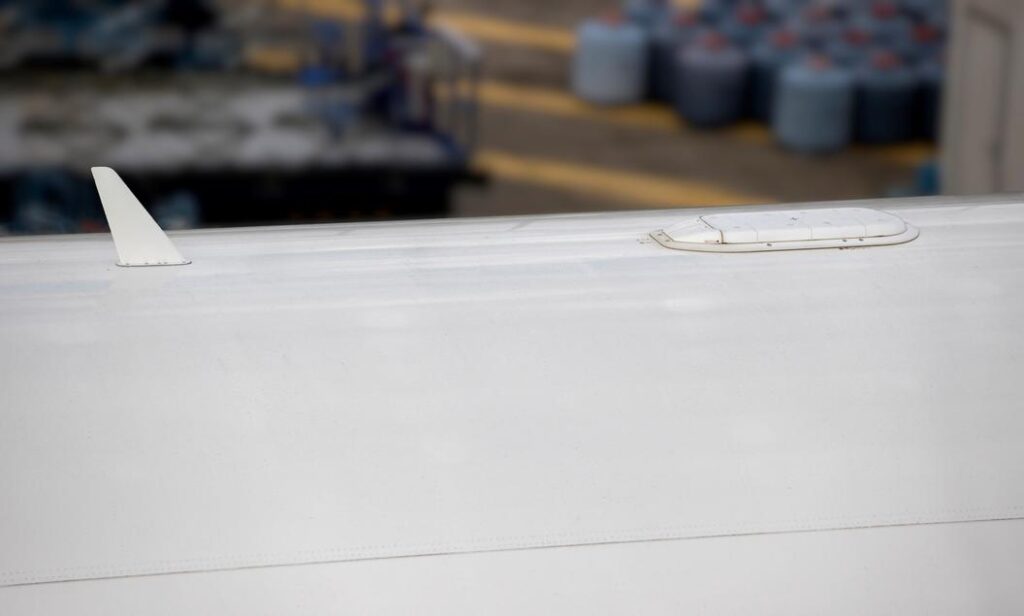
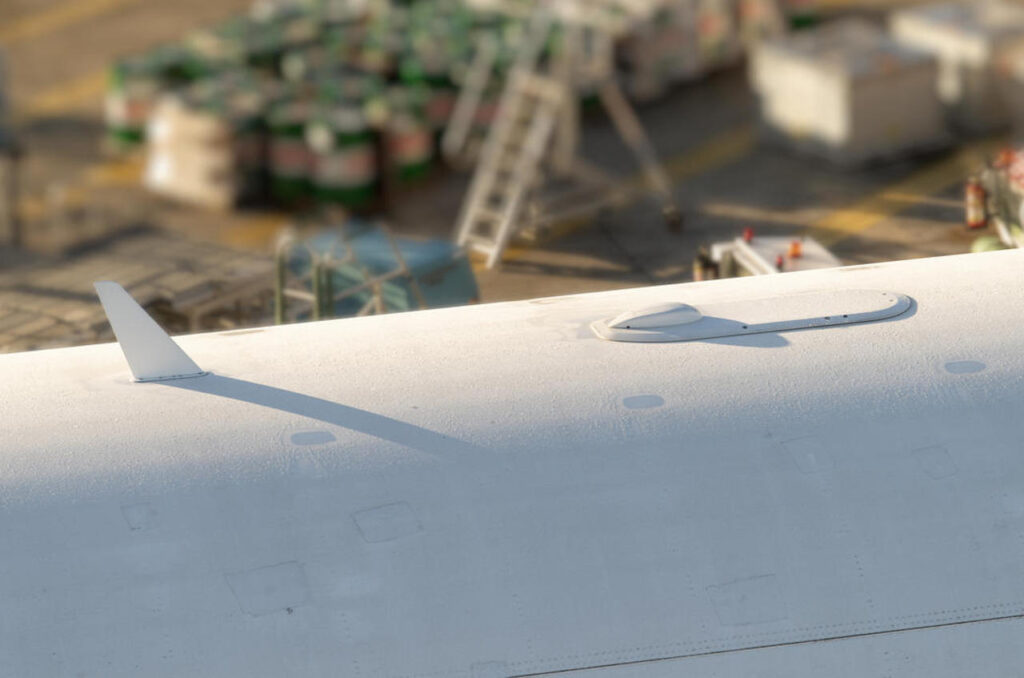
As a cockpit connectivity system, LCS is enabled by the “Inmarsat L-Band satellite constellation (today ensured by four I-4 satellites, to be complemented and superseded tomorrow by I-6 ELERA satellites network operating in geostationary orbit) using SB-Safety 2.0 services,” the article notes.
Compared to the previous generation system’s configuration of up to 20 master control units (MCU) weighing up to 60 kilograms (Kg) from three different suppliers, LCS requires two MCUs weighing less than 10 Kg from one supplier.
Flight crews also get up to 200 kilobits per second (Kbps) with LCS compared to 30 Kbps featured in the previous generation.
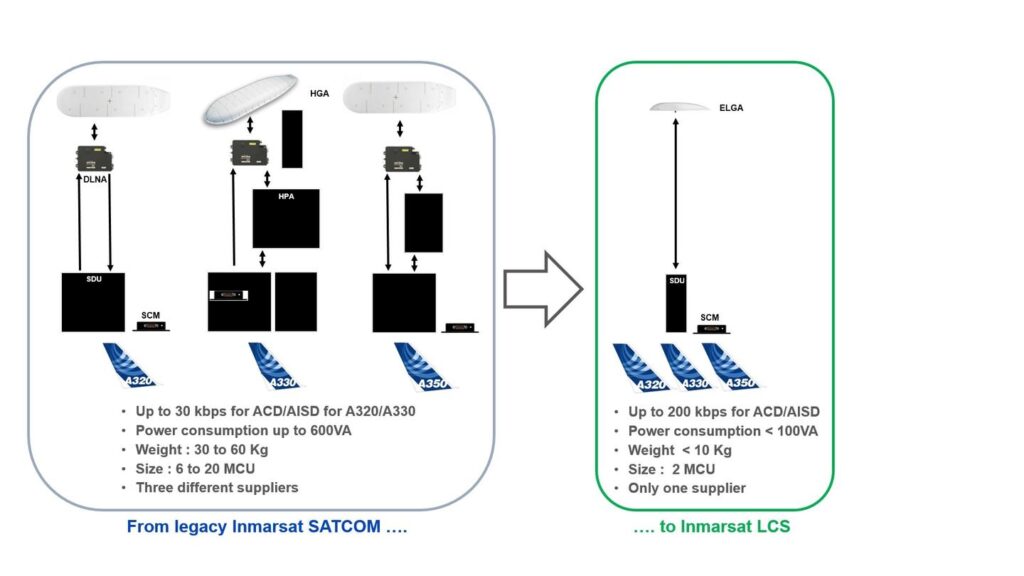
Jim Fawcett, a lead flight test engineer for Airbus, is quoted in the article, describing how his team evaluated the new system, stating,”To ensure good geographical coverage and correct voice and data service behaviour at satellite handover boundaries, we even operated our A350 on a 12-hour flight from Toulouse in France to Gander in Canada and back, without landing! Our crews found the HMI (Human Machine Interface) intuitive and easy to use. The system behaved well and should provide a secure solution for our customers in the years ahead.”
According to the article, several airlines have already started flying with the new LCS system on A320 and A330 family aircraft, while the system is scheduled to become available for airlines flying the A350 next year.

#CAIPODCAST Ep. 77: Valour’s Daniel Welch Talks 2022 In-flight Connectivity Updates, Starlink and Regional Trends

On this episode of the Connected Aviation Intelligence Podcast, Daniel Welch, senior consultant for Valour Consultancy, joins to discuss in-flight connectivity (IFC) business models for airlines, installation trends, the recent Starlink agreements and more.
In January, Welch published a blog post showing that in the fourth quarter of 2021, the global IFC installed base increased for the second consecutive quarter, driven by installation activity in North America. He provides some updates IFC installation and service activity for airlines, regional trends and some insight on the recent Starlink agreements established by SpaceX with Hawaiian Airlines and JSX.
Listen to this episode below, or check it out on iTunes or Google Play. If you like the show, subscribe on your favorite podcast app to get new episodes as soon as they’re released.

Viasat Achieves First In-Flight Connectivity Type Certification in China

Viasat has achieved the first type certification for its in-flight connectivity system in China on the Airbus A320.
The Civil Aviation Administration of China (CAAC) issued a Validation of Supplemental Type Certificate (VSTC) to the satellite operator for the installation of Ka-band satellite systems on Airbus A320s. Under the new VSTC, A320 operators based in China can modify their aircraft with Viasat’s antenna, radome, modem, server, and wireless access points (WAPs).
According to Viasat, the new VSTC was issued based on an Airbus A320 STC previously certified by the European Union Aviation Safety Agency (EASA). Xinhua, a Chinese media outlet managed by China’s government, in February published an update noting that Airbus plans to deliver the 600th A320 family aircraft assembled at its final assembly line in north China’s Tianjin Municipality this year.
Don Buchman, Viasat’s vice president and general manager, Commercial Aviation, called their first Chinese type certification “significant because Chinese-based airlines, using our best-in-class equipment, are now a step closer to delivering an on-the-ground internet experience to their passengers while in-flight. We’re grateful to our partners in China for their support and are committed to continuing to invest in this important market—where we have operated since 1994—for the long run.”
Viasat’s CAAC A320 type certification comes following a November agreement established with China Satellite Communications (China Satcom) that will allow the satellite operator to offer its Ka-band service to domestic and international airlines via the Ka-band ChinaSat-16 satellite system.

Alaska Airlines Taps Intelsat to Provide Flat Rate IFC Service on 105 Aircraft
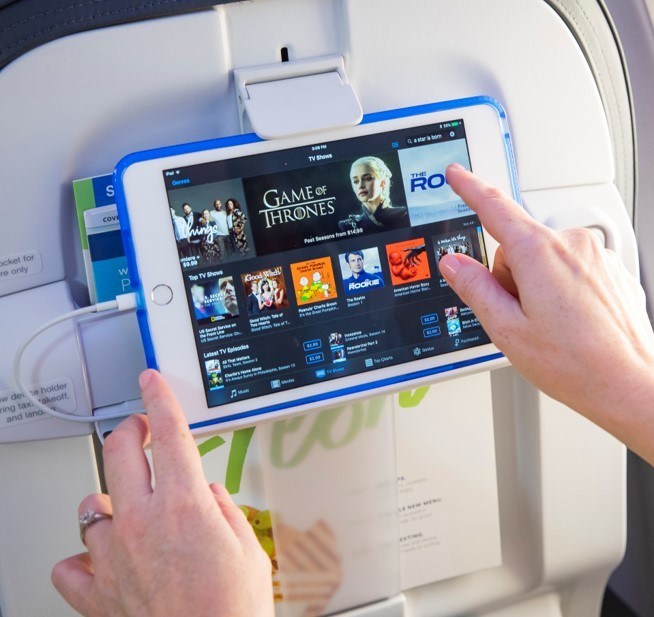
Alaska Airlines is expanding its partnership with Intelsat to provide in-flight connectivity (IFC) on 105 of the company’s new fleet of Boeing 737MAX aircraft. Intelsat-equipped aircraft deliveries have already commenced and will continue through 2024 across Alaska Airlines’ new 737-9s.
The airline already operates Intelsat’s 2Ku IFC service on 150 aircraft, after first partnering with Gogo in 2010. Intelsat acquired the commercial aviation segment of Gogo in 2020. The deal announced Thursday is the largest expansion of the IFC relationship between the two companies to date.
Alaska Airlines said in its own release that the service will give guests better reliability, faster connections, and a lower cost. The company reported its web portal now loads 50% faster than before with a “one-click-to-connect” web experience, and connection speeds are 20 times faster than the previous, basic Wi-Fi system. The company also announced a new $8 flat rate for Wi-Fi service on mainline aircraft equipped with satellite-enabled connectivity.
“Alaska is committed to delivering a connected experience that gives their guests a high-speed internet service and high-quality content. I couldn’t be happier that they chose Intelsat as their partner,” said Dave Bijur, senior vice president of commercial in Intelsat’s commercial aviation division. “Our continuous launch of satellites over the next several years, starting with Intelsat 40e next year, puts us in a position to deliver reliability, redundancy and speed – all of which maximize guest satisfaction.”
